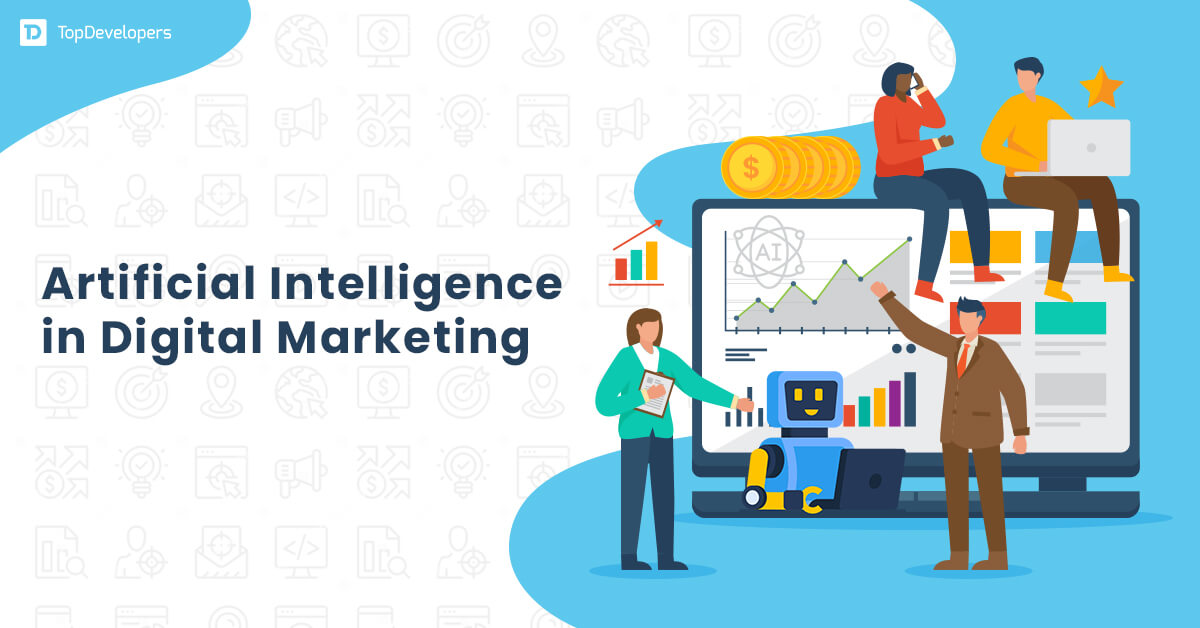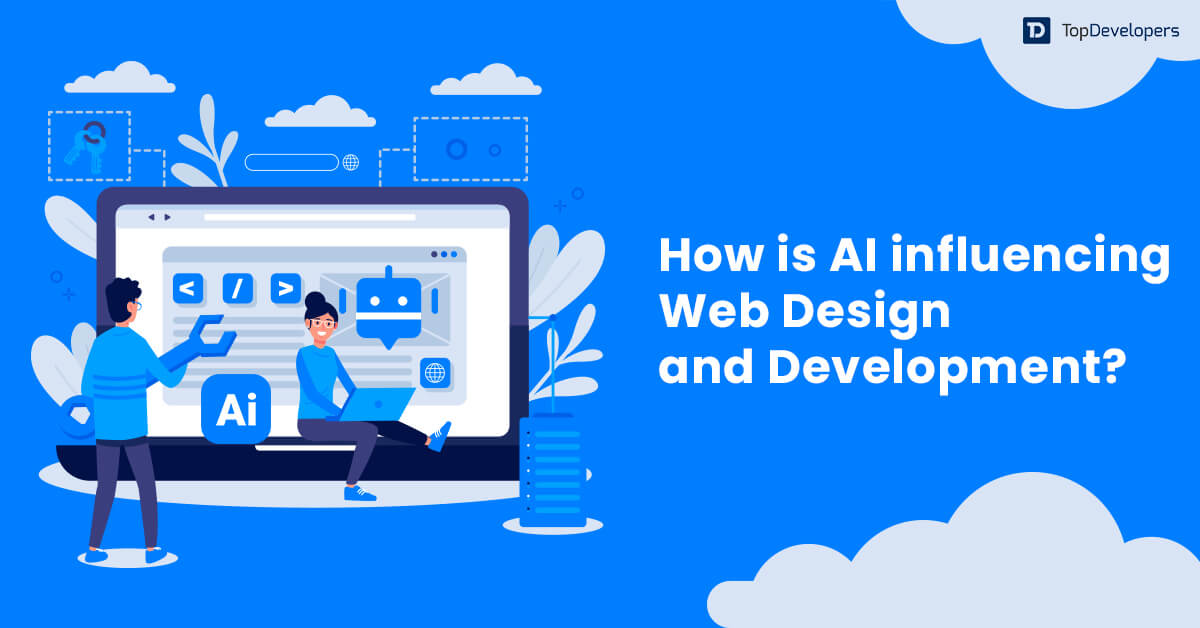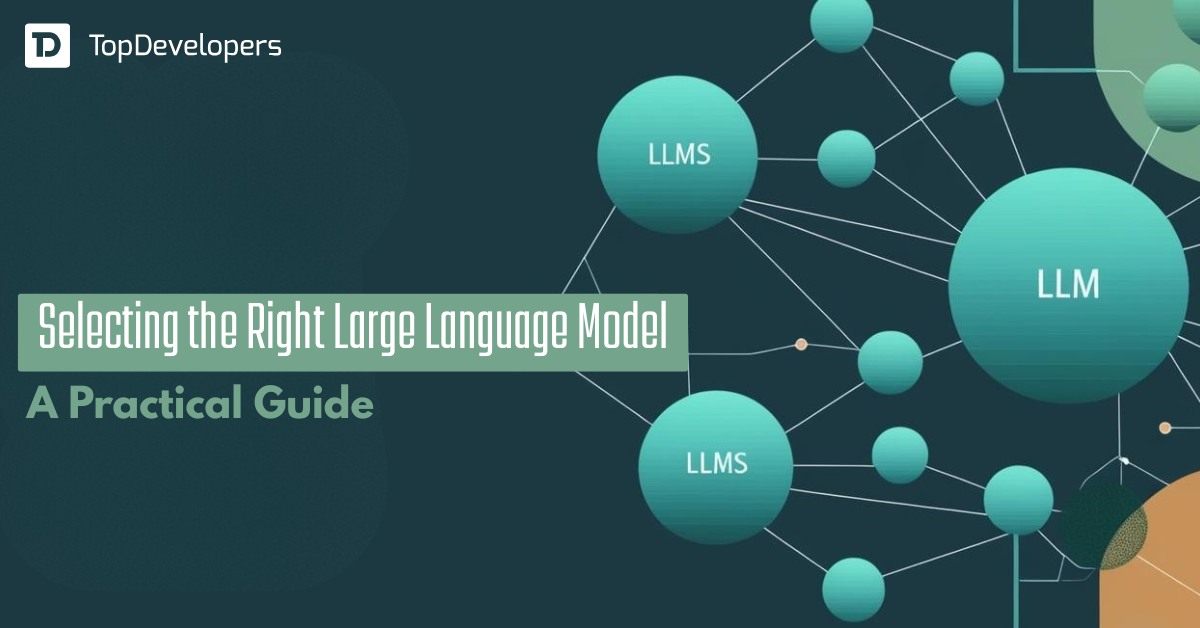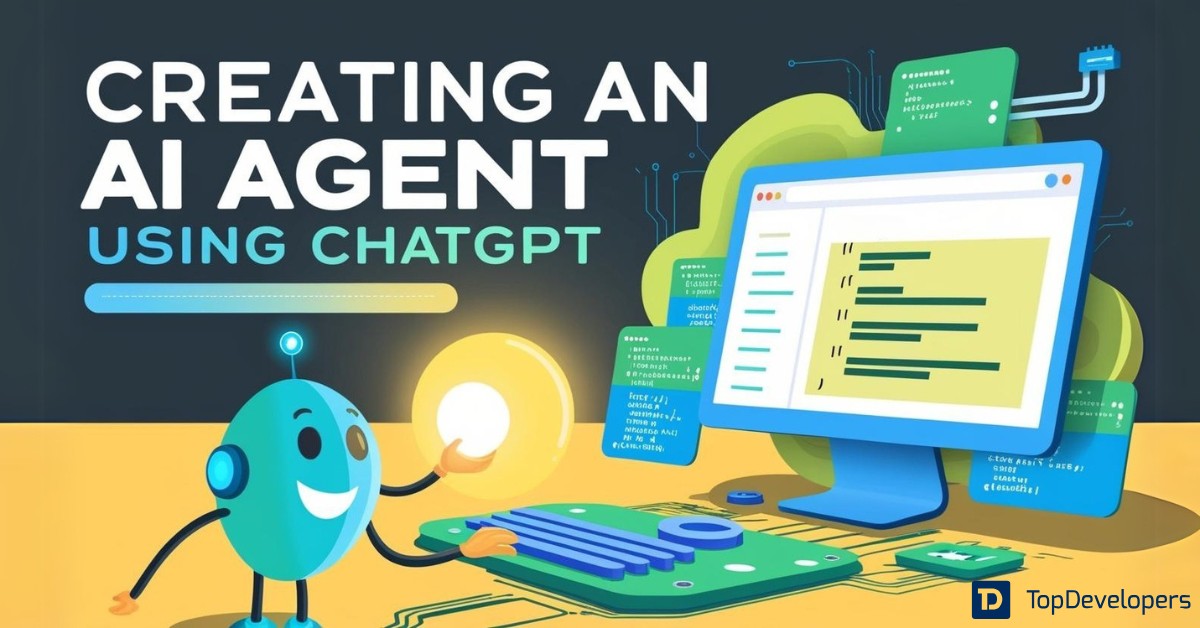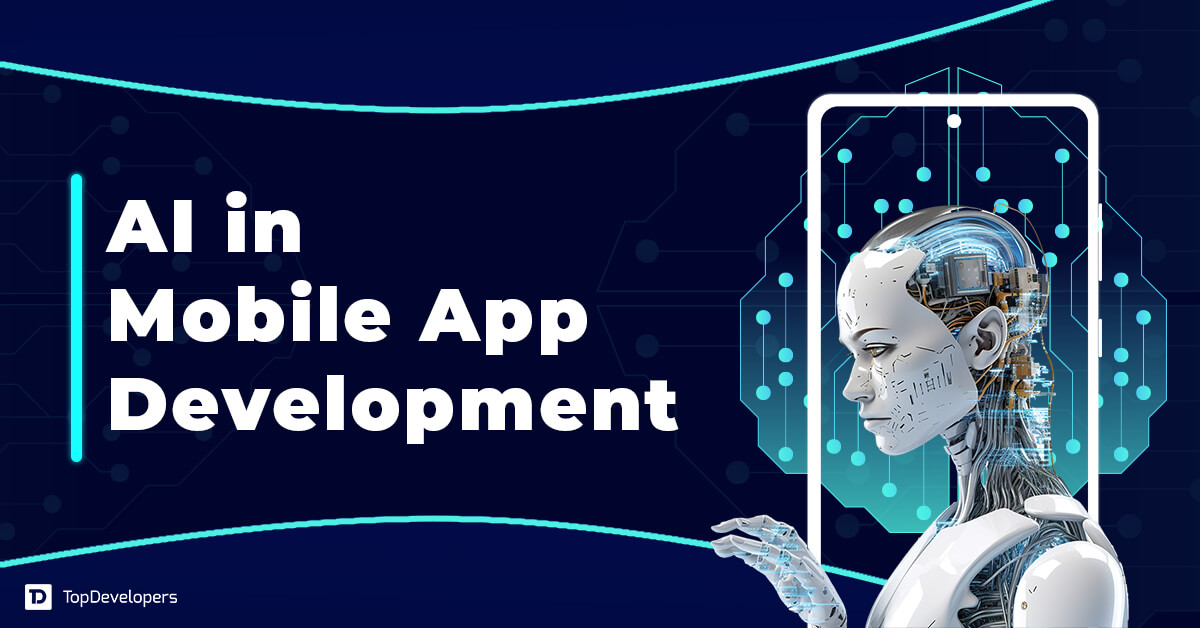
Emerging technologies like AI offer a glimmer of hope as they can take up most of the teachers’ non-core tasks, allowing them to focus more on the students. In addition, educational institutions understand the potential of Artificial Intelligence in Education sector and are exploring the idea of implementing the technology in the domain. Many top education app development companies are exploring the use of AI in various areas of education.
Artificial Intelligence (AI) can transform our understanding of education completely. The use of AI in the education industry, including virtual and augmented reality and personalized learning algorithms, has improved student learning in ways nobody has ever imagined.
The Global Education market is poised for growth of 10.39 %, from $8.60 billion in 2022 to $9.55 billion in 2027. So, the future of Artificial Intelligence is undoubtedly about to bring some revolutionary benefits and give rise to several business ideas, too.
With bright prospects and a rise in education awareness through newer horizons and subjects, investing in hiring education marketers today is a good choice for business owners and enterprises not only to thrive but also to flourish in the coming years. The education industry shall be one of the fastest growing sectors as expected by industry experts.
Here, in this short guide, we shall learn a few inputs on how AI is changing the education sector.
Table of Contents
- The Role of AI in Education
- Closing Skill Gap
- Customized Data-based Feedback
- 24/7 Assistance with Conversational AI
- Secure and Decentralized Learning Systems
- AI-Based Educational Games
- Smart Content Creation
- Virtual learning environment
- Secure online exams
- Simplifying administrative tasks
- Task Automation
- Personalized Learning
- Facial recognition in Education institute
- Emotional well-being of Students
- Helping children with special needs
- Safeguards to follow by Education sector
- Preparing our future
The Role of AI in Education
Teachers are spending a lot of time in non-teaching activities like grading. Although essential, these activities diminish the time that the teachers spend on teaching and reduce the teaching process’s overall output. But then, the latest machines and technologies can help overcome such issues.
Closing Skill Gap
Closing skill gap—what does this mean? It means to define or estimate various skills or knowledge for every learner– revealing the weak areas within these zones. It can be a little hard to achieve this, especially for teachers who instruct several students at once. However, with personalized instructional support, students can develop their missing skills in a very short time.
The use of Artificial Intelligence in the education sector reveals its ability to improve the quality of education and help students understand subjects and topics in a better way. For instance, in some cases, an Artificial Intelligence system uses performance indices of students to guide teachers on specific areas where help may be needed depending on different learners’ strong and weaker points.
Customized Data-based Feedback
Since the advent of AI in the education industry, using data insights to make more personalized feedback has improved how students learn from their mistakes. AI has customized data-based feedback in the industry of education to analyze individual students’ performance data and render personalized feedback to the particular student. It provides an in-depth analysis of a student’s unique capabilities about their peers, shedding light on where they have made improvements and in which directions there is room for enhancements.
On the other hand, by giving teachers solid, data-informed direction, they will be able to see their students’ learning needs more clearly and apply instructional strategies that suit these better. For example, it enables instructors to identify areas where pupils have difficulty or need to enhance their performance.
This enhances learning and allows students to direct attention to the problematic zones that need much support, leading eventually to their academic progress.
24/7 Assistance with Conversational AI
Chatbots are an increasingly common illustration of how AI in the education industry consumes data to inform and help appropriately. Both education institutes and teachers gain from this in terms of user involvement in personalized learning.
Giving assistance to students 24/7 is also useful as it will enable teachers to create more personalized content for each student. The chatbot industry will also be worth around 1.25 billion US dollars in 2025. Chatbots are gaining impressive inputs through AI and ML which make them human-like responders. Most education centers today are heading toward automated responses to learners through AI-enabled chatbots for which top chatbot developers customize chatbots as per the topic or subject queries to respond more accurately and precisely.
Accurate responses to the most complex subjects or topics are one of the biggest benefits of AI in the education industry because such enhanced accessibility improves learning by providing timely support, assistance, and information. It results in a great helping hand to students to learn flexibly, thereby beating challenges and picking up information of their choice when necessary.
Secure and Decentralized Learning Systems
Decentralized learning systems refer to the information being stored as opposed to several nodes rather than to having everything put in one place, such as the school server. It’s like carrying them with you all over the place. This enables students to access the educational content wherever they need rather than just from one place.
However, it is usually limited by issues such as data security, flexible data access, outmoded certification methods, and so on. Despite all these difficulties, decentralized Artificial Intelligence in teaching and learning solutions might usher in a good technological revolution in education.
AI-Based Educational Games
With customized learning experiences catered to each student’s unique needs and talents, AI and education applications are revolutionizing students’ learning. The games can adapt to the student’s needs and skills, making learning entertaining and personalized. Through analyzing a pupil’s performance and growth, AI can adapt the difficulty and contents of the games so that they keep becoming challenging without being too hard.
In addition, AI’s analytical power records a student’s achievements and provides insightful feedback. As such, the learner can develop and find the whole learning process exciting. The educational game market is also on the rise as AI-enabled games are dynamic and interactive means of combining educational knowledge and entertainment while keeping students on their toes.
It is worth noting that with self-solving and self-learning software tools on the rage, it makes a good business opportunity for entrepreneurs to invest in the education game industry. Hiring the best game developers to build educational games could make a fortune for you.
Smart Content Creation
Education is the main source of knowledge and sanity in today’s world. The importance of education cannot be overstated, as it helps individuals meet their dreams and build their careers.
However, one must ensure the educational content is up-to-date and completely correct during education. This is why smart content creation is necessary. One observes several benefits and importance of Artificial Intelligence in education industry, but the most useful one can be smart content creation.
Here’s how:
Information Visualization
The visuals generated by AI can make instructional content more interesting. Data visualization tools and techniques allow for an easy understanding of difficult concepts that were learning-based earlier. In simpler terms, AI helps turn hard things into simple illustrations and figures. As a result, this makes sense to us easily, which is why the use of charts and drawings enhances learning.
Digital Lesson Generation
AI-generated text and multimodal and interactive materials are the kinds of these digital lessons. If so, they could modify their lessons to accommodate the learning preferences of each learner. The content is user-friendly and interactive, meaning better student performance.
Frequent Content Updates
A new concept is introduced every other day, so it’s important to be updated to date to learn better. This is only possible through updating the education content regularly. AI enables users to add often and edit content without being technically sound.
Virtual learning environment
AI digitizes textbooks and other learning materials, allowing the students to access them at their convenience from different devices. The virtual learning environment is great for those students who cannot attend physical classes as it allows such students to access virtual classes from anywhere.
The virtual environment also helps foreign students study those courses that are not available in their countries, thus opening up the opportunity of learning to a lot more students than the physical environment.
The AI-enabled virtual learning platforms can also translate the learning material into different languages. This feature ensures that a wide range of students gains access to knowledge irrespective of the language.
Secure online exams
Cheating in examinations is a big problem around the world. Below mentioned are the shocking statistics from a study conducted in the U.S. and the U.K.
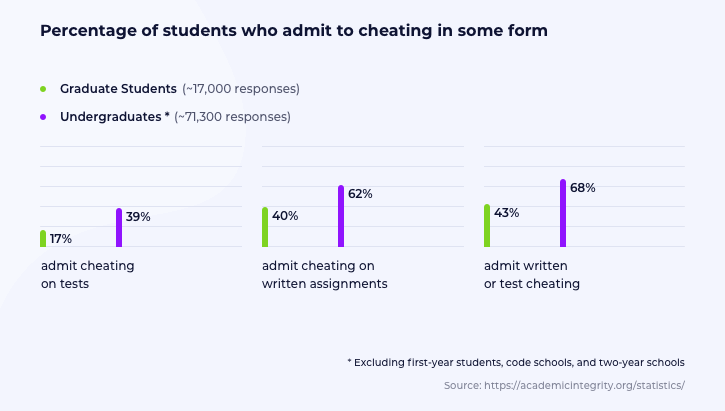
To tackle the menace of cheating, education institutions can hire the best Artificial Intelligence developers who can integrate AI technology effectively. Many global universities and schools turn to scrutinize the essays submitted by the students. Turn it in uses an advanced artificial intelligence algorithm to find out plagiarism in essays.
Many educational institutes utilize AI systems to supervise examinations. One such tool is Proctortrack. The tool uses sophisticated AI algorithms that detect the facial and other body movements of the students during an exam. The system flags inappropriate behavior and alerts the human supervisor. AI systems can nab students who are consulting with other students or searching for answers online.
Simplifying administrative tasks
The educators spend a lot of time assessing homework, grading exams, taking attendance, and so on. These administrative tasks reduce the amount of time that teachers spend on teaching. AI systems can help automate the tedious and repetitive administrative tasks of academic institutions.
Every year large educational institutions need to process the application forms of thousands of students who want to take admission in their institute. A lot of time is wasted in processing these applications. The AI systems can also help educational institutions automate the admissions process.
Task Automation
Automated Grading System
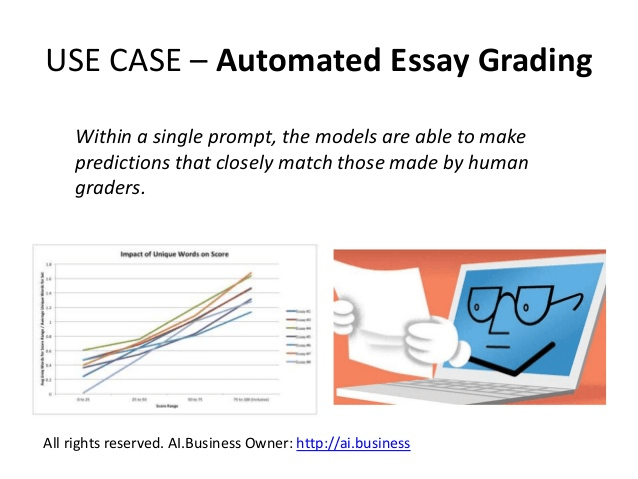
Researchers at UC Berkeley have built an app known as Gradescope, which helps grade students answer papers. Gradescope is an app that has a vast data set of more than 10 million answers to around 100,000 questions from a vast array of courses. The app helps the teachers in grading assignments at a double pace, and it also has a unique feature that allows multiple teachers to grade papers simultaneously.
Gradescope is relatively successful because it addresses the following challenges.
- Identifying the types of questions
- Distinguishing between various written marks
- Recognizing handwriting
A unique feature of AI is that it groups answers and treats them as batches. The benefit of this feature is that if 50 students have answered a particular question correctly, then the AI will assist the teacher in grading the answer sheets of all the students as correct for that particular answer.
Automated test-taking
Teachers also use Artificial Intelligence applications to automate the test-taking process. Using a pre-set question bank that the teachers have designed, AI systems can build question papers themselves. The automated test-taking capabilities of AI systems offload a significant amount of burden from the shoulders of teachers.
Auto-replies
Many times the students have doubts regarding some concepts taught in the classroom. Teachers and professors cannot be expected to respond to students 24×7. This is where the role of AI comes. AI systems can send auto-replies to questions of students. The AI system can respond to the queries of students based upon the teacher’s previous responses to similar questions. The AI system can also send automated notifications to students regarding the class schedule.
Personalized Learning
Personalization is the new norm in the digital world today as companies from Netflix to Facebook are using the power of personalized recommendations to drive their revenues upwards.
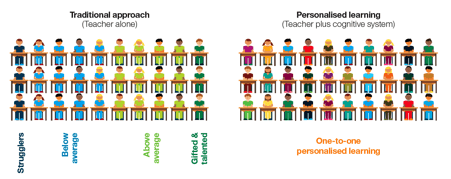
With digital innovations, the dream of personalized learning is coming to fruition. E-learning platforms like Duolingo use AI to craft immersive and personalized learning pathways for people who want to learn a foreign language. For example, a personalized math app built for the children of Malawi gave encouraging results. Using this math learning app, the children made rapid strides and covered the learning time designed for 12-18 months within a short period of just six weeks.
Good teachers know that every child is unique, and hence they adopt different teaching methods according to the child’s learning style. AI applications help teachers in their endeavor of providing personalized learning to their students by letting them know the strengths and weaknesses of each child. For instance, some students do better with written assignments to work independently, while others need classroom lectures to understand a concept. Thus, AI can help the teachers in bifurcating students into different learning style groupings.
Brightspace Insights is one such AI software that assists teachers in identifying at-risk students, allowing them to craft different learning strategies for such students.
Using comprehensive data visualization and predictive analytics tools, Brightspace alerts the teachers about students’ learning issues at the correct time, enabling the teachers to take corrective action.
Facial recognition in Education institute
China has already started the use of AI technology in a big way. For example, the face scanners in schools automatically take attendance of the students, which helps save time. Apart from taking attendance, the facial scanners also scan the faces of all the students every 30 seconds or so to ascertain whether the students are paying attention or not.
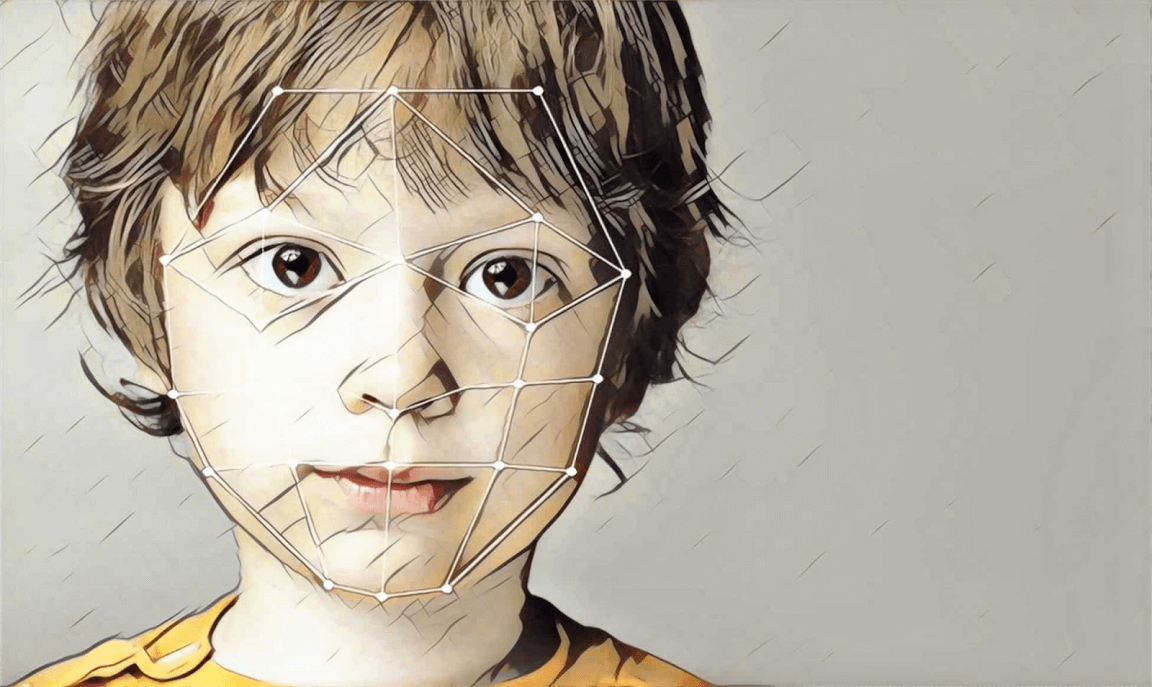
Apart from helping the students in learning, AI is also helping in keeping them safe. Mass shootings in schools are a big issue in the USA. According to the Gun Violence Archive, the number of mass shootings in the USA was 578 till November 2020, significantly higher than 417 mass shootings reported in 2019.
Schools all over the US are now deploying sophisticated AI-enabled tools like facial recognition software. These tools can scan for weapons and even alert the authorities when someone is suspiciously moving in empty spaces within the school. The AI system can also flag regular offenders like previous students barred from carrying a weapon from entering the school premises.
Emotional well-being of Students
The learning ability of a student is directly correlated with the emotional state of the child while learning. To help the teachers determine the student’s emotional state, the Department of Artificial Intelligence in Spain is building a special robot.
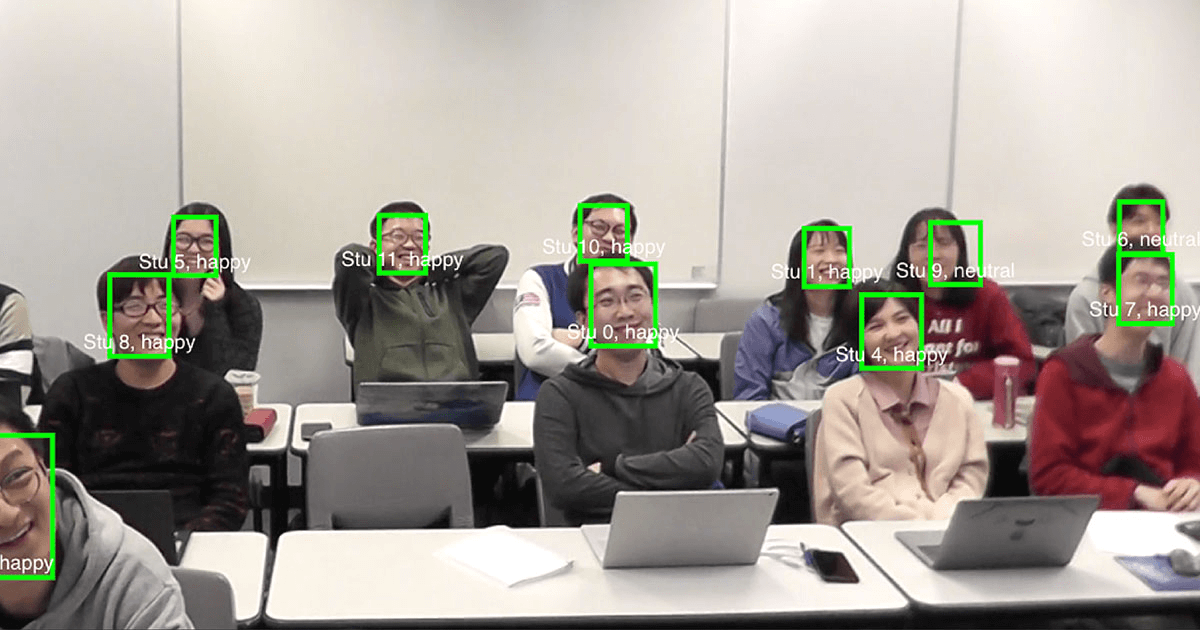
The robot will gauge the student’s emotional well-being by analyzing the student’s keyboard strokes and mouse actions. According to the feedback it receives, it would then take actions like telling encouraging words to the students to increase their motivation towards learning.
The research team behind ARTIE has identified that the robot has helped students stay motivated during learning sessions, thus positively impacting their learning ability.
Less pressure on Student
Many students do not ask questions to the teachers in front of the classroom. This severely impairs their learning ability. With advanced e-learning technologies, the students could easily ask their personal learning assistant questions and instantly explain the problem. This is another way in which AI is helping in boosting the emotional well-being of the students.
24/7 Access to Learning
AI assistants help the students learn 24*7, meaning that they are free to plan their days without being tied down to anyone’s physical place. AI allows the students to build their schedules according to their most productive hours. Many distance learning apps are exploring the concept of an AI tutor/assistant.
Helping children with special needs
Nearly 1.3 billion people in the world live with some form of vision impairment. In addition, around 466 million people are suffering from some form of hearing impairment. AI is helping children with special abilities in learning.
OrCam’s MyEye is a wearable technology equipped with AI that helps the visually impaired read books, recognize faces, and find their favorite products and brands. Learning mobile apps like SpeakIt, DragonDiction, and Read2Go help visually impaired students read, write, and note-taking. The visual calculator is an app that helps visually impaired children in working with math.
Educational institutes have to make special accommodations for students with hearing impairments. Often, to provide a better view to such students, the teachers have to give them unique places, alienating them from the rest of the classroom.
Evoke is an AI-enabled hearing device that differentiates the background noises’ important noises, allowing students with hearing disabilities to focus better. In addition, Evoke’s accompanying mobile app allows the students to select only the sounds they want to hear.
Empower Me is an innovative glass that aims to bridge the understanding gap between the instructor and the students with autism. The glass analyses the emotions on the face of the autistic students and interprets them for the instructors. Autistic children have a hard time interpreting various social signals.
QTrobot is an AI-enabled social robot that teaches social skills to children who have autism.
Safeguards to follow by Education sector
While implementing AI, educational institutes should take a few safeguards to ensure that the technology achieves its intended purpose.
Assess the impact
The education institute should intend to document and assess AI’s impact and its intended outcomes. In addition, the assessment should contain a thorough risk assessment of the technology’s harm to students’ well-being and rights.
Engage stakeholders
The AI systems affect not only the students but also the teachers, parents, and the admin staff of the educational institute. Therefore, before integrating the system with the educational institute’s systems, all the stakeholders should be taken into confidence.
Examine input data for bias
A significant fear of AI systems is regarding the AI systems’ bias. One needs to understand that the bias in AI systems comes from biased input data. Hence care should be taken to ensure that the input data is not biased.
Humans in the loop
Always ensure that there is human involvement at some point, as, without it, it would be challenging to maintain context and nuance during the decision-making process.
Address data governance
The AI systems should be governed by strict data deletion, retention, and access control policies, without which the data can fall into unscrupulous hands.
Regular audits
Performance audits should be regularly conducted to ensure that the system is working as intended. Such audits help build strategies and better the educational system.
Regular communication
There should be a constant communication flow between the educational institute and the stakeholders to ensure that the AI system gets essential feedback.
Redressal systems
No system is perfect, and the same is true with AI systems. There should be a robust complaint redressal system to ensure that whenever the AI makes a mistake, the students and others affected get a chance to highlight the same.
Abiding by the law
While implementing AI systems, educational institutions should consider that the AI system is compliant with the prevailing laws.
Preparing our future
AI is transforming the education sector in unprecedented ways and the top AI developers can help in this transition in easier and cost-effective way. It enables personalized learning, adaptive assessment, intelligent tutoring, and data-driven insights. The technology can also enhance the quality, accessibility, and affordability of education for learners of all ages and backgrounds. Artificial Intelligence is a powerful ally that can augment its skill and creativity; indeed, the future of education is bright with AI.
 Avantika Shergil
| Oct 23, 2023
Avantika Shergil
| Oct 23, 2023
Avantika Shergil is a technology enthusiast and thought leader with deep expertise in software development and web technologies. With over 8 years of experience analyzing and evaluating cutting-edge digital solutions, Avantika has a knack for demystifying complex tech trends. Her insights into modern programming frameworks, system architecture, and web innovation have empowered businesses to make informed decisions in the ever-evolving tech landscape. Avantika is passionate about bridging the gap between technology and business strategy, helping businesses build customized software and website, and understand about different tools to leverage effectively for their ventures. Explore her work for a unique perspective on the future of digital innovation.




